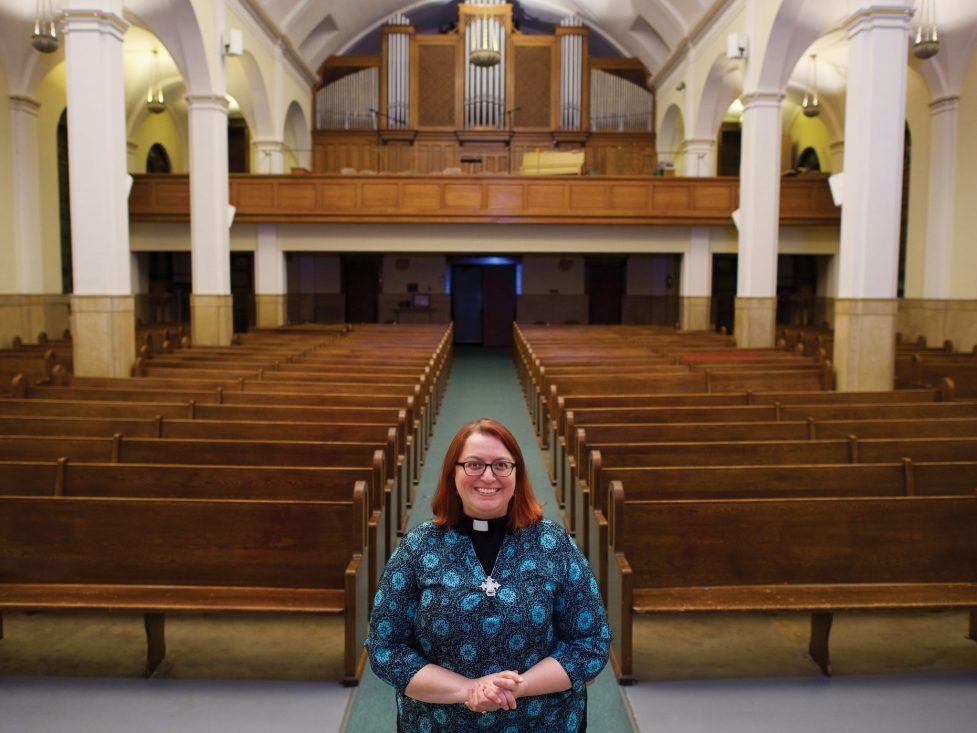One Nation – Elizabeth Speich Bier ’02

Elizabeth Speich Bier got her first taste of how international policies and narratives impact entire groups of people — often beyond an individual person’s control — while studying abroad on Term in the Middle East during her junior year at St. Olaf.
“One of the pieces we looked at on that program was how Muslims are portrayed in the media and how racism plays into that,” Bier says. “I learned quite a bit about how the narrative at the top levels of government — or in the media — is disconnected from what we experience through interpersonal relationships.”
She returned to campus with a desire to engage more deeply with vulnerable populations impacted by U.S. policies, particularly those surrounding immigration. After graduation, Bier was called to serve with the Lutheran Volunteer Corps (LVC) as a case manager in the refugee resettlement program of the Minnesota Council of Churches (MCC) in Minneapolis. Her duties included ensuring that support systems for refugee families were in place, including housing, schooling, cultural orientation, health care, job training, and food assistance.
“I am committed to being a globally engaged citizen, and the idea of inviting people to new lives of hope has always resonated with me,” Bier says of her work with refugees. She continued to work for the MCC after her volunteer service was complete, leaving to attend Luther Seminary, from which she graduated in 2010.
Based in St. Paul, Bier now works for the LVC as recruitment and outreach manager. She also serves as affiliated pastor at Christ Lutheran Church on Capitol Hill, a multi-ethnic congregation with a commitment to inclusiveness, showcased through its advocacy work on behalf of vulnerable populations, such as those living in poverty. The church is a founding partner of Daily Work, a nonprofit that assists people struggling with financial instability by connecting them to community resources for job training, English classes, or basic needs.
“The Christian faith — and our connection as people — doesn’t have boundaries and borders,” Bier says. “I’m continually reminded, when meeting someone new, of how complex each person’s story is. It’s much more than the assumptions I carry about a particular group they belong to. To be truly welcoming, we have to enter into places of trust together.”
“I’m continually reminded, when meeting someone new, of how complex each person’s story is. It’s much more than the assumptions I carry about a particular group they belong to.”